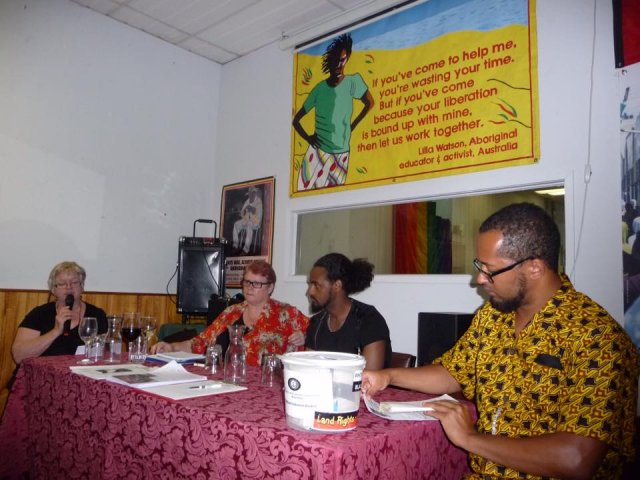
About 30 people attended a meeting on February 23 on the theme: "How can we stop deaths in custody and hold the police to account?". The meeting was organised by the Indigenous Social Justice Association (ISJA).
ISJA member Cheryl Kaulfuss spoke about the death of Aboriginal teenager TJ Hickey as a result of police action in Redfern in 2004. Nationwide protests on the anniversary of his death led to the formation of ISJA Melbourne.
Ethiopian-born Maki Issa spoke about police harassment and brutality towards African youth in the Melbourne suburb of Flemington. He said police stop and search Africans for no reason, while their white friends are not stopped.
Issa added that Africans are subjected to verbal and physical abuse by the police, sometimes resulting in broken bones. People have been thrown out of a car or taken into the countryside and made to walk home.
As a result of such treatment, Issa said 26 people had initiated a class action against Victoria Police and the state government. Threats against the complainants and their families caused 20 complainants to drop out, but the case, supported by the Flemington Community Legal Centre and law firm Arnold Bloch Leibler, eventually went to the Federal Court.
In an out of court settlement, the police promised to make some changes, including the introduction of "multicultural training", but from Issa's observations this training is extremely inadequate.
Issa spoke of the need to "police the police", citing the example of the Black Panther Party in the United States in the 1960s.
He suggested that phone trees be created so that when someone is arrested, community members gather at the police station to let the police know their actions are being monitored.
ISJA member Alison Thorne told the meeting that the recommendations of the 1987–91 Royal Commission into Aboriginal Deaths in Custody have not been implemented.
Recommendation 92 says that imprisonment should be the last resort. But rates of imprisonment of Aboriginal people have been increasing. Because of poverty, they are disproportionately jailed for unpaid fines. They are also more affected by laws against drinking in public.
Thorne also spoke of ISJA's call for elected civilian review boards and community control of the police. She said the civilian review boards should have the power to gather evidence and charge police.
Like the article? Subscribe to Green Left now! You can also like us on Facebook and follow us on Twitter.